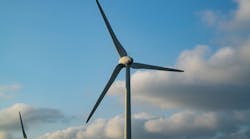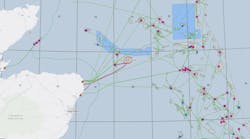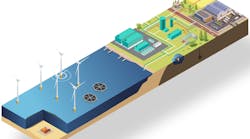While COVID-related disruptions continue to slow economic activity, vaccines and government-sponsored stimulus packages are rolling out and raising optimism that a rebound is near. Meanwhile, in the US, the new Biden administration is threating to delay an impending recovery in the oil and gas industry. It is too early to tell how Biden’s energy policy will impact oil and gas development, but a series of executive orders and senior official appointments sends a clear message that fossil fuel production will be thoroughly examined. On the flip side, Biden’s policy should bode well for offshore wind developers seeking a more structured federal regulatory policy and lease sale schedule.
Offshore oil and gas and renewable energy development can and should be viewed as complementary. In a recent joint survey with Energy Maritime Associates, Offshore readers were asked about the impact that the emerging floating wind market would have on the floating oil production market. About 35% of respondents feel that floating wind will complement and enable additional hydrocarbon floating production systems. See page 16 for a full report by David Boggs, managing director, Energy Maritime Associates. In an earlier survey of Offshore readers, some 39% of respondents expressed interest in learning more about offshore renewable energy development, just behind floating platform design and operations with 41%. Specialized engineering, construction, and project management skills and services are transferrable between the oil and gas and offshore wind industries, and wind energy is rapidly emerging as an alternative power source for drilling rigs and production platforms.
Inside this issue on page 38, Bruce Beaubouef, Offshore managing editor, describes a range of power solutions deployed offshore that are designed to increase operational efficiency and lower environmental footprint. Other efforts to reduce greenhouse gas emissions include the development of technologies and processes to measure and mitigate methane leaks, and the capture and storage of carbon emissions.
In the UK, operators face mounting pressure to deliver returns while demonstrating their social license to continue offshore operations. The UK government has set an ambitious target of net zero by 2050. Jeremy Beckman, Offshore Editor-Europe, discusses the challenges the North Sea operators are facing and how they intend to meet their objectives. His report begins on page 24.
Also inside is a drilling update and forecast, and an offshore wind development outlook.
To help facilitate the collaboration of offshore oil and gas and wind energy professionals, Offshore is launching a new forum, titled “Floating Energy Systems.” The inaugural forum is slated for late this year. An official announcement with more information will be circulated to readers very soon.
The forum aims to bring together global operators, developers, and supply chain companies to explore the technologies, construction and installation techniques, operational challenges, and environmental and safety considerations for offshore oil, gas, and renewable energy development with floating systems. At the time of this writing, there were over 420 floating production units in operation, over 40 on order, more than 40 available for redeployment, and an additional 69-154 units could be required over the next five years. It is still early days for floating technology for offshore wind development, with about 66 MW installed at the end of 2019. But the pipeline of projects is growing as developers move out into water depths that exceed the economic limit of fixed foundations. The Global Wind Energy Council’s latest forecast is for 3-19 GW of new floating capacity by 2030. New technology and localized supply chains will help bring down the levelized cost of energy and enable more floating wind projects to move forward.






